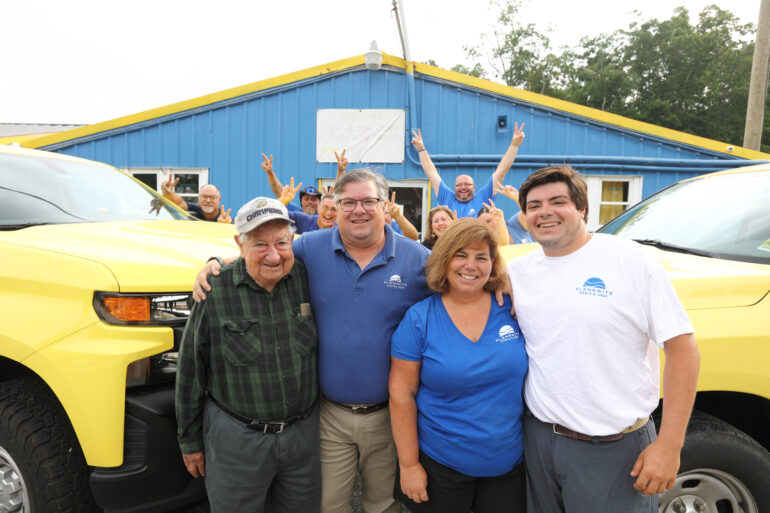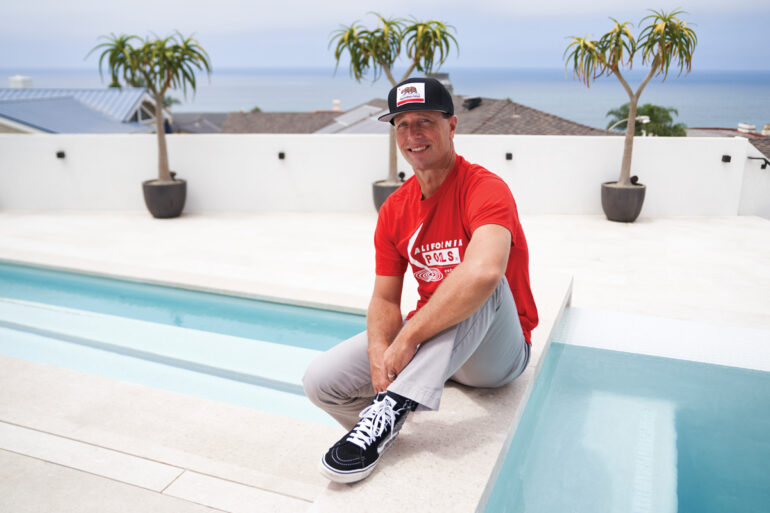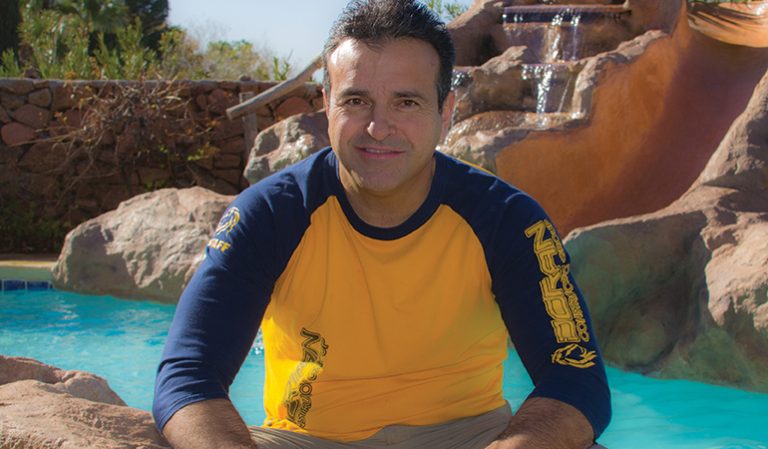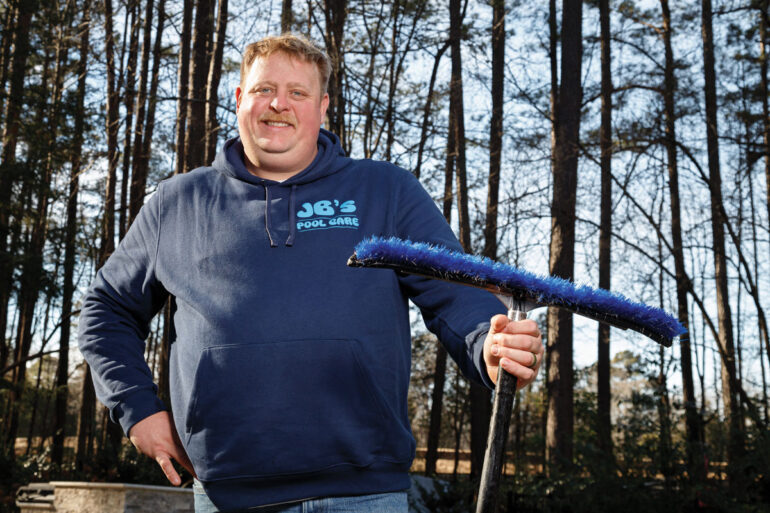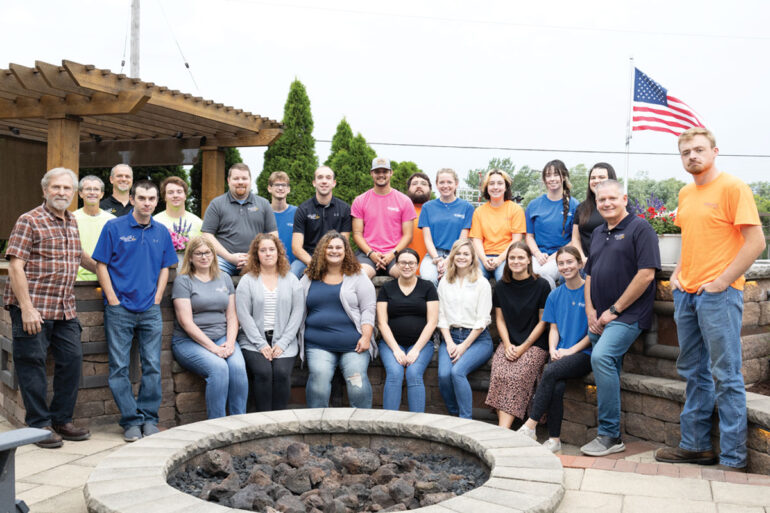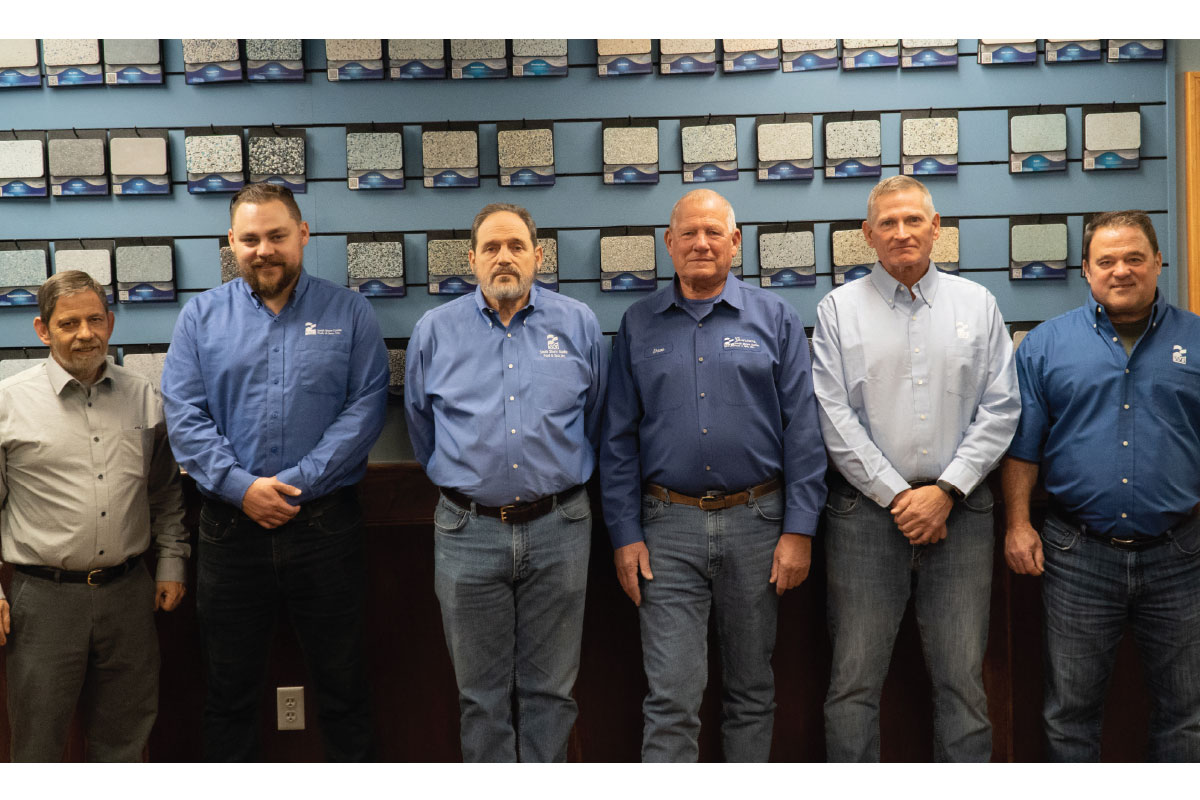By the Numbers
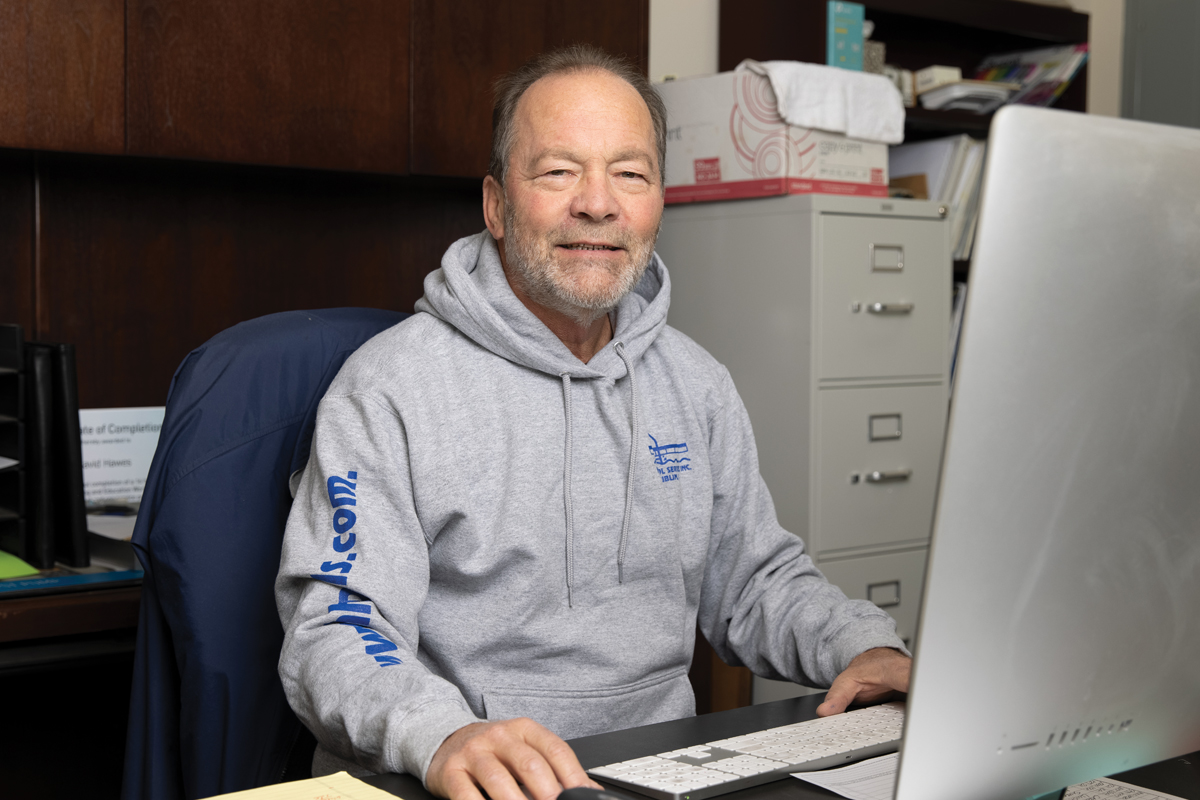
David Hawes’ commute to his first pool account required him to walk down his driveway and up his neighbors’. At 10 years old, he grew his business to three accounts, putting a rack on his bike so he could carry chemicals and supplies around the neighborhood.
“I used to put a gallon of chlorine, a gallon of acid, a test kit, some tablets, and I ran off on my bicycle do to the two pools that were farther than next door — not OSHA approved,” Hawes says.
From selling hard candies at school to having a paper route to servicing neighborhood pools, Hawes always had an entrepreneurial spirit. “My parents [his dad worked for a pool company doing repairs] were lower middle class, so if I wanted something I needed to work to get it,” Hawes says. “The pool business offered a great opportunity.”
Hawes worked on pools to put himself through college, earning a degree in finance and accounting. When he graduated, he became an accountant for Hewlett Packard.
“After six months of sitting in a corporate office with a beautiful window, I was looking out there thinking I want to get back outside,” Hawes says. He committed to making the pool industry his full-time gig, leaving the corporate job and going all-out, officially starting H & H Pool Services in 1982. “I had full intentions of building a business,” Hawes says.
With his background in finance, Hawes is adamant that pool professionals make decisions based on their financials.
[letsinfoup]
“You can be a good business owner and a bad pool guy and still be successful,” Hawes says. “But if you’re a good pool guy and not a good business owner, the curtains are going to come down.”
For a time, H & H grew to two offices, servicing 1,000 weekly accounts. Now the company has whittled the customer count to 600 weekly residential clients and maintains a single office. The decision to grow and shrink its number of customers wasn’t just based on market growth and contraction, but also on studying where the company was most profitable.
“Develop a customer profile and live by that,” Hawes says. If customers who don’t fit his company’s profile call, they don’t take on the service. But of the customers H & H does take on, team members do whatever they can to make them a customer for life. Hawes says some customers have been with him since the beginning and that he is now servicing pools for some of their children and grandchildren.
“People are starving for good service,” Hawes says, adding that they will pay a premium to be treated right. “We had a major overhaul this year because of all the price increases and raised our prices. I think we lost four accounts.”
A turning point for Hawes as a business owner came when the first employee he hired, who stayed with him for 16 years, told Hawes he wasn’t a good boss. “ ‘You show very little gratitude,’ ” Hawes remembers him saying. “I listened to him — I started saying thank you.” Keeping a thumb on the company morale and culture became almost as important as keeping a thumb on the numbers: “My job now is to be a cheerleader for everybody. Keep my troops ready, keep my culture going.”
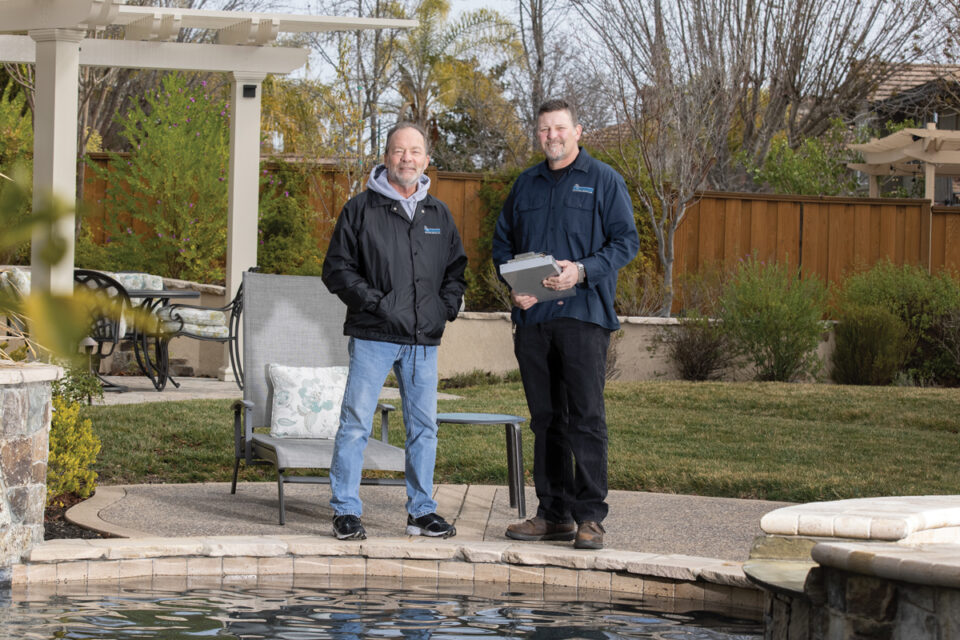
Hawes has seen the industry evolve with more educational opportunities, advancements in technology and better comradery. When his dad was servicing pools, he’d check his mirror to see if anyone was following him to steal accounts. “This is what I started with in terms of relations within the community itself,” Hawes says — but that attitude is not the norm anymore, he says: “Now we can drive down the road, pass another pool guy and wave with all five fingers. I am so thankful for it, and IPSSA was the impetus for that tide to turn.”
Early in his business ownership, Hawes became involved with The International Swimming Pool Service Association. Over the years, he has volunteered in several positions, now serving as CFO and Region 1 director.
“Talking, sharing ideas and reaching out — that’s the great thing about all the associations out there,” Hawes says. “It’s the one thing I’d encourage all younger industry members to do: not only look for the education opportunities, but [also to know that] most of us older guys have been in the business for a long time and want to help. Half of my phone calls are helping other guys troubleshoot something. A lot in my circle are doing the same thing. That’s one of the things that’s such a blessing being in this industry.”
In addition to advocating to focus on the financials, Hawes also urges pool professionals to make sure they take care of themselves.
“I didn’t do this at the beginning,” Hawes says. “Running the business was 24/7. What I encourage people to do is disengage and go do something fun. That’s the thing I wish I would’ve done more of: taken more time for myself.”
With two failed exit strategies under his belt — partnerships unsuccessful because Hawes says he didn’t do his homework — Hawes thinks he may have found a better succession plan by looking within his company. Both his service manager and repair manager have the background and experience that could make them good candidates. “I have to develop them,” Hawes says. “I’ve got good guys at the technical part, but the business part suffers. That’s the part I excel in, so I’ve got to start training and bringing them in, which is what we’ve started doing.”
Photography by Chris Constantine
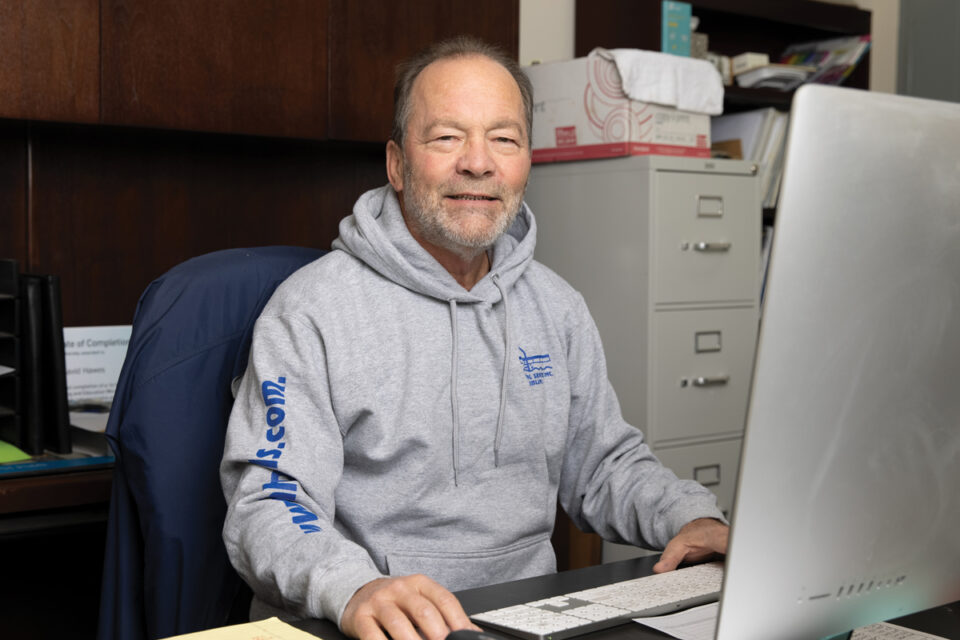
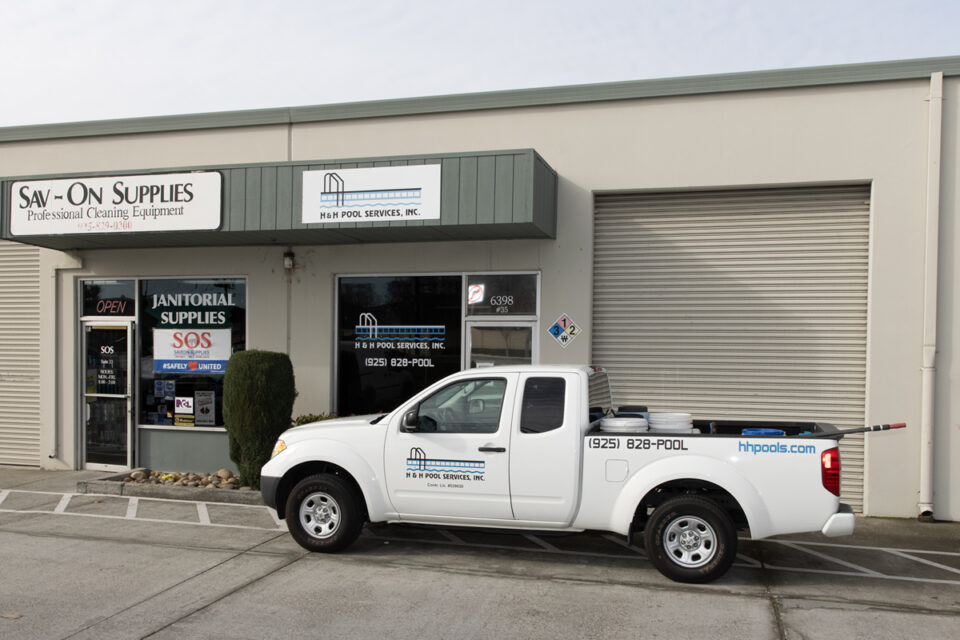
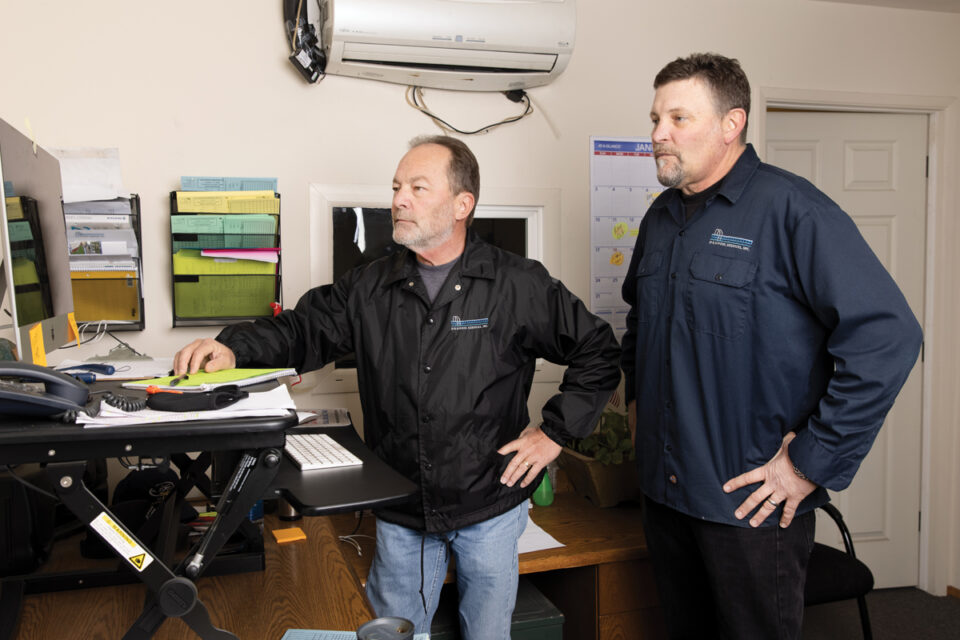
Hawes with service manager Mark Bodine 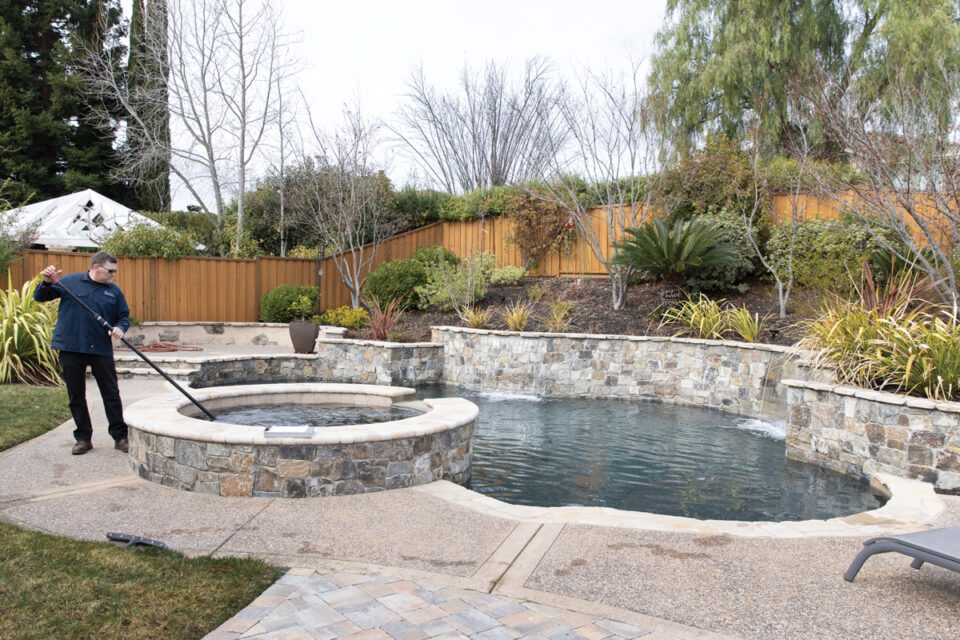
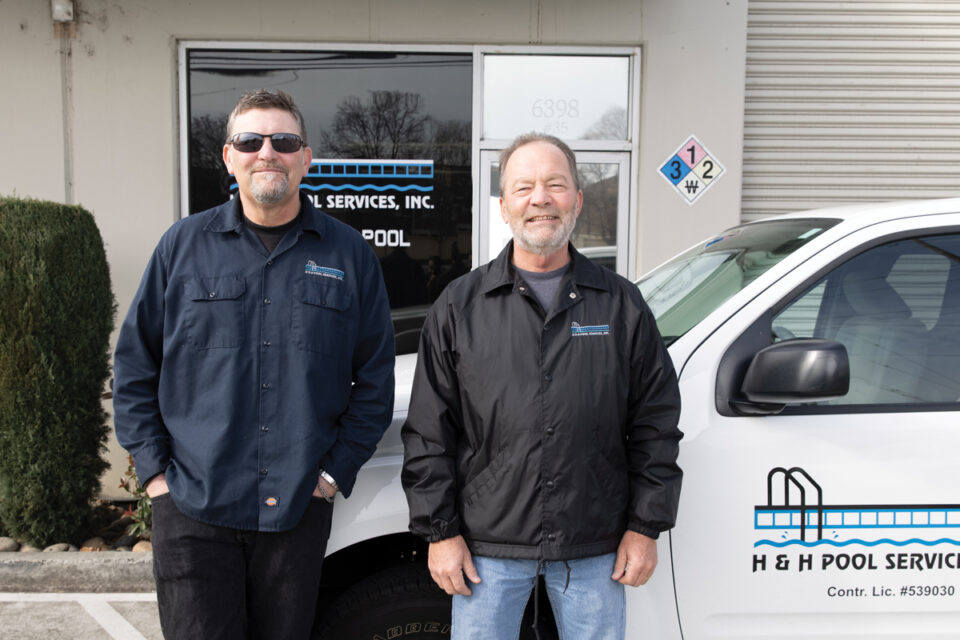
Service manager Mark Bodine and Hawes

